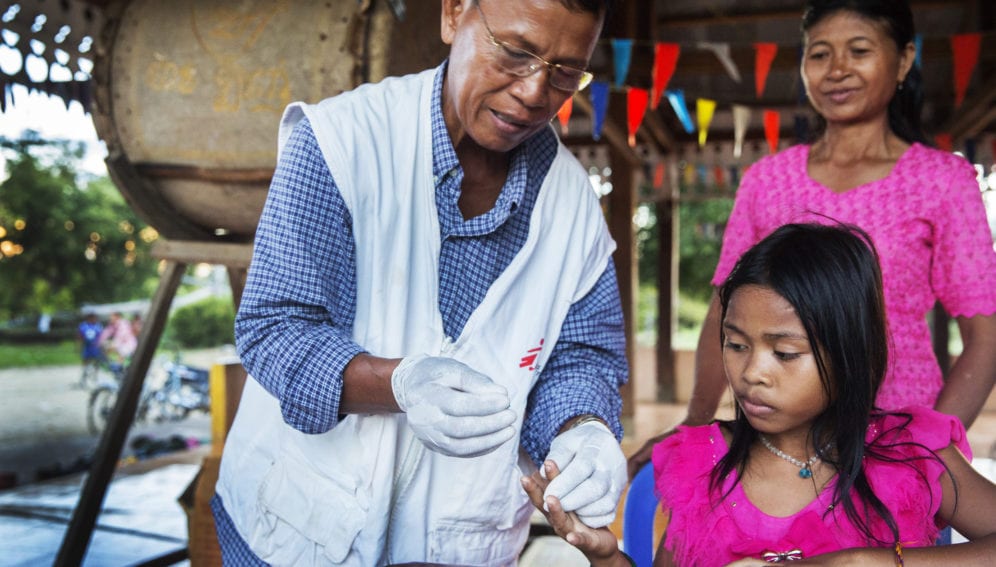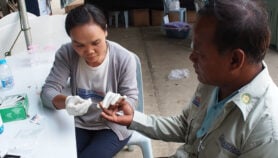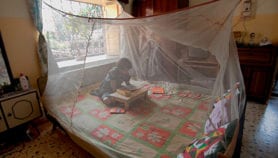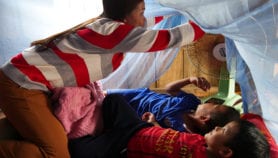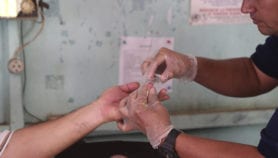By: Neena Bhandari
Send to a friend
The details you provide on this page will not be used to send unsolicited email, and will not be sold to a 3rd party. See privacy policy.
[SYDNEY] The inaugural Malaria World Congress (2—5 July) in Melbourne has called on the global community to work unitedly to enhance political and financial support to combat the debilitating disease.
“The status quo is not okay as so much suffering depends on us acting, and acting vigorously,” said Brendan Crabb, immunologist and chief executive officer of Burnet Institute, a Melbourne-based not-for-profit research and public health organisation, while delivering the keynote closing address.
“Diseases like malaria know no borders and that is why health security is a global challenge because we have to operate transnationally…. we do know that when health systems come together globally we can transform the outcome”
Julie Bishop, Australian foreign minister
“It is not just engaging but putting the vulnerable communities that are the least listened to at the head of the table — to innovate, and to collaborate, is what will give us the motivation to finish the job (malaria elimination) in the countries that need the last mile to be achieved,” Crabb said.
There were 216 million cases and 445,000 malaria-related deaths worldwide in 2016, according to the World Health Organization (WHO). In endemic countries, the social and economic burden on households, communities and health systems impact national GDP by as much as six per cent, and slow economic growth by 1.3 per cent annually.
In recent years, investments in malaria programmes have plateaued. In 2016, US$ 2.7 billion was invested for combatting malaria against the WHO estimate of minimum of US$6.5 billion needed annually by 2020 to control the disease.
“Success depends on donor countries sustaining their commitments to effective multilateral organisations like the Global Fund. It also requires malaria-affected countries to significantly step up their investments in strengthening health systems to improve malaria prevention and control, and ultimately, elimination,” Michal Fishman, managing director of strategic communications at Malaria No More, tells SciDev.Net.
“We also need to improve the use of data to ensure that we are using limited resources most effectively and targeting the right anti-malaria interventions at the right place and at the right time,” adds Fishman.
Eleven countries account for 70 per cent of the burden, while 44 countries are well on the way to eliminating the disease.Africa bears 90 per cent of global malaria cases and deaths but has several initiatives against the disease. Evelyn Korkor Ansah, director, Centre for Malaria Research (CMR) in Ghana, tells SciDev.Net that CMR is currently contributing to evaluating the pilot implementation of a malaria vaccine programme, which will start in Ghana in September and subsequently exended to Kenya and Malawi.
India accounts for 60 per cent of all cases outside sub-Saharan Africa, according to the WHO. Bangladesh, Indonesia, Nepal and Timor-Leste show significant progress in decreasing malaria mortality. Maldives and Sri Lanka have been declared malaria-free, and China is expected to follow suit by 2020. Three Pacific nations are on track to meet their agreed-upon deadline for malaria elimination by 2030, with Vanuatu making the best progress, followed by the Solomon Islands and Papua New Guinea.
“Diseases like malaria know no borders and that is why health security is a global challenge because we have to operate transnationally…. we do know that when health systems come together globally we can transform the outcome,” Australian foreign minister Julie Bishop said in her opening address to the congress.
Areas identified by the congress for urgent action include promoting scientific, technical and social innovation for developing new tools and strategies for prevention, diagnosis and treatment. A new regional platform, the Vector Control Platform for Asia Pacific, was launched at the congress to link diverse sectors.
This piece was produced by SciDev.Net’s Asia & Pacific desk.


